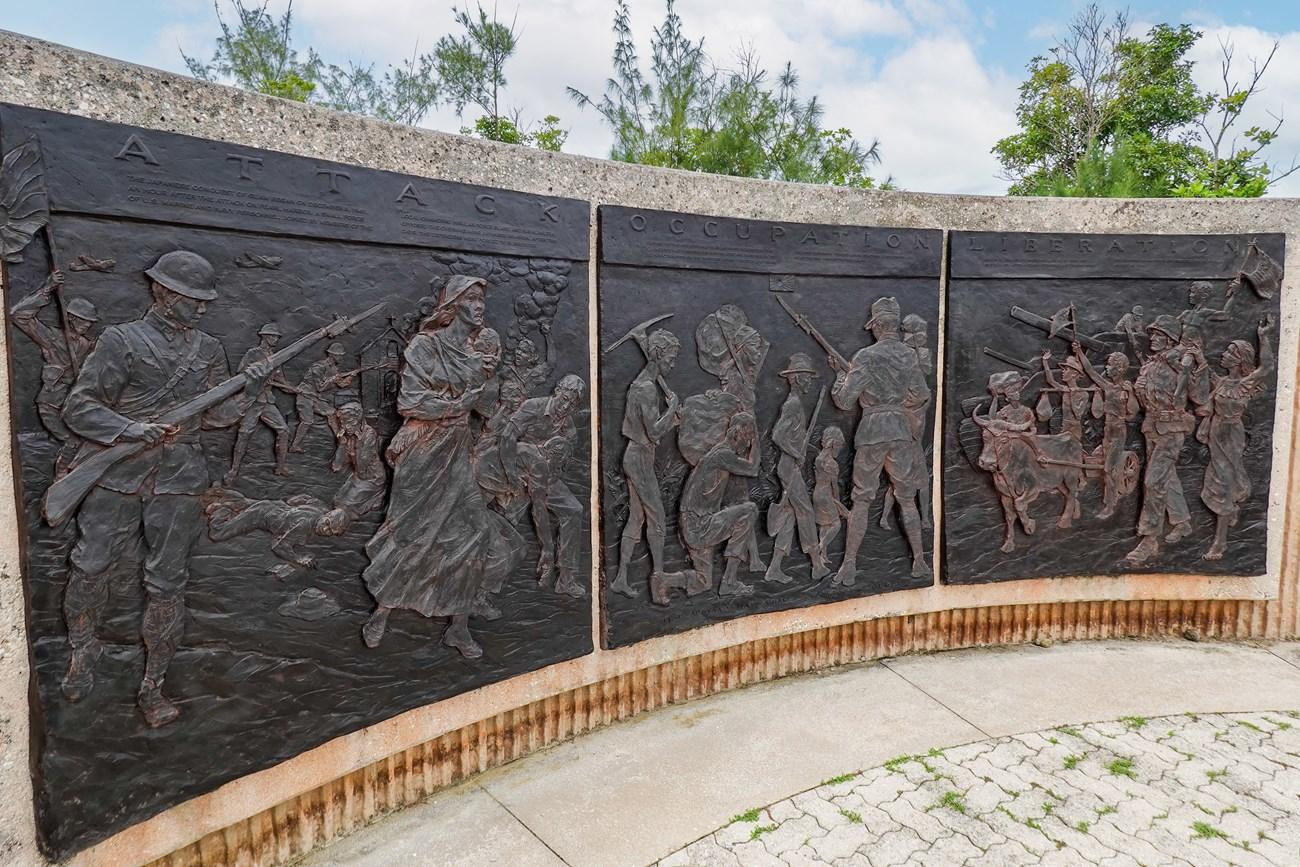
Asan Beach Park: A Tranquil Paradise in Guam
Asan Beach Park, located on the western coast of Guam, is a serene escape known for its pristine beaches, crystal-clear waters, and lush greenery. This picturesque destination is perfect for those looking to unwind, soak up the sun, and enjoy the natural beauty of the island. Visitors can take leisurely strolls along the sandy shores or simply relax and take in the stunning ocean views. History enthusiasts will appreciate Asan Beach Park's significance as it played a vital role during World War II. The park is part of the War in the Pacific National Historical Park, which commemorates the bravery and sacrifices of soldiers who fought in the Pacific Theater. Informative plaques and memorials are scattered throughout the park, providing valuable insights into the island's storied past. Outdoor activities are plentiful at Asan Beach Park. The calm waters make it an ideal spot for snorkeling and swimming, while the surrounding areas offer excellent opportunities for hiking and bird-watching. The park's picnic areas and barbecue pits are perfect for a family outing or a romantic picnic. With its blend of natural beauty, historical significance, and recreational activities, Asan Beach Park is an essential stop for any traveler exploring Guam.
Local tips in Asan Beach Park
- Visit early in the morning to avoid crowds and enjoy the peaceful surroundings.
- Bring snorkeling gear to explore the vibrant marine life in the clear waters.
- Take time to read the historical plaques and visit the memorials to fully appreciate the park's significance.
- Pack a picnic and use the barbecue pits for a delightful meal with a view.
- Wear comfortable shoes if you plan to hike the trails around the park.
Asan Beach Park: A Tranquil Paradise in Guam
Asan Beach Park, located on the western coast of Guam, is a serene escape known for its pristine beaches, crystal-clear waters, and lush greenery. This picturesque destination is perfect for those looking to unwind, soak up the sun, and enjoy the natural beauty of the island. Visitors can take leisurely strolls along the sandy shores or simply relax and take in the stunning ocean views. History enthusiasts will appreciate Asan Beach Park's significance as it played a vital role during World War II. The park is part of the War in the Pacific National Historical Park, which commemorates the bravery and sacrifices of soldiers who fought in the Pacific Theater. Informative plaques and memorials are scattered throughout the park, providing valuable insights into the island's storied past. Outdoor activities are plentiful at Asan Beach Park. The calm waters make it an ideal spot for snorkeling and swimming, while the surrounding areas offer excellent opportunities for hiking and bird-watching. The park's picnic areas and barbecue pits are perfect for a family outing or a romantic picnic. With its blend of natural beauty, historical significance, and recreational activities, Asan Beach Park is an essential stop for any traveler exploring Guam.
When is the best time to go to Asan Beach Park?
Iconic landmarks you can’t miss
Two Lover’s Point
Discover Guam's iconic Two Lover's Point: breathtaking views, a tragic love story, and a must-see cultural landmark overlooking Tumon Bay.
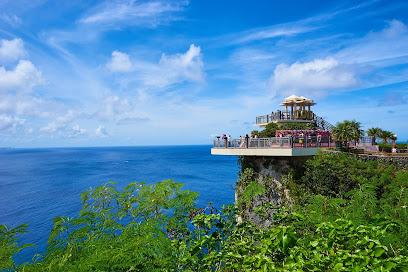
Plaza de España
Explore the historical Plaza de España in Hagåtña, Guam, and discover the island's Spanish colonial past through its preserved ruins and cultural significance.
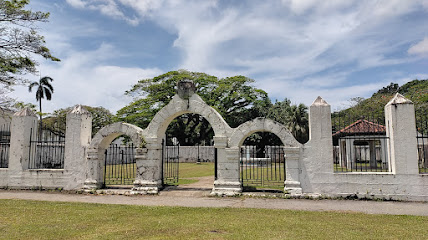
Fort Nuestra Señora de la Soledad
Explore Guam's Spanish colonial past at Fort Soledad, offering panoramic views of Umatac Bay and a glimpse into the island's rich history.
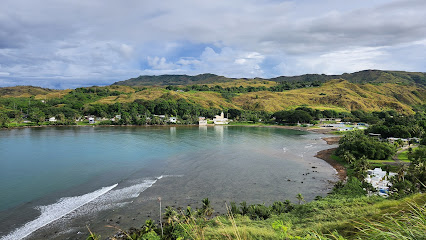
Merizo Pier Park
Discover scenic beauty & vibrant culture at Merizo Pier Park, a must-visit Guam destination for relaxation, recreation, and local experiences.
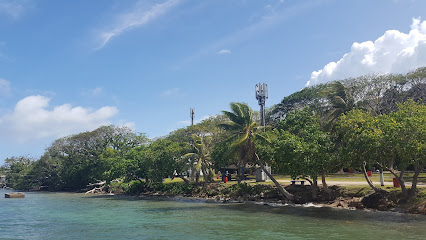
Cetti Bay Overlook
Discover panoramic vistas and ancient history at Cetti Bay Overlook, a window into Guam's volcanic origins and Chamorro heritage.
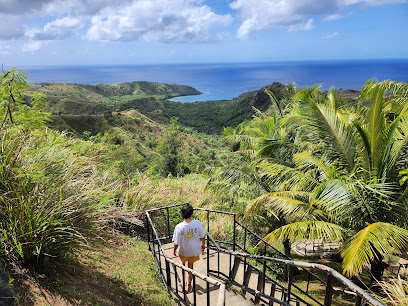
Ritidian Point
Explore Guam's hidden gem: Ritidian Point, where pristine beaches, ancient history, and natural wonders await at the island's northern tip.
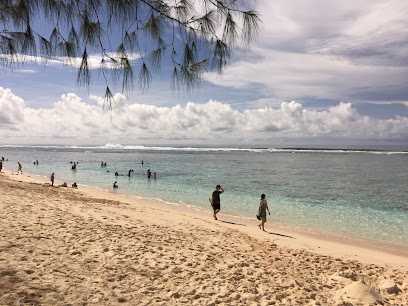
Guam National Wildlife Refuge
Discover Guam's natural beauty and ancient Chamorro culture at this vital wildlife sanctuary and historical site on the island's northern tip.
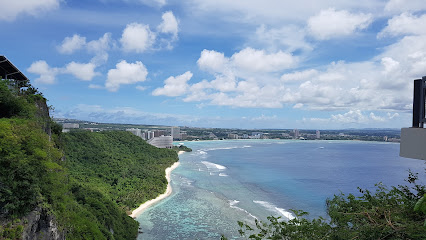
Paseo de Susana
Discover Hagåtña's waterfront charm at Paseo de Susana, a park with history, ocean views, and a welcoming local vibe.
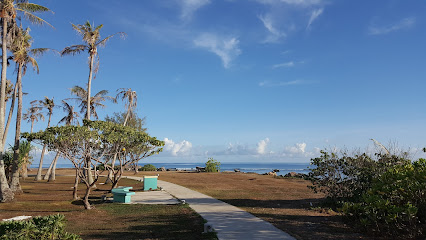
Aquarium of Guam
Explore Guam's underwater world: walk through a tunnel with sharks, rays, and more at the Aquarium of Guam!
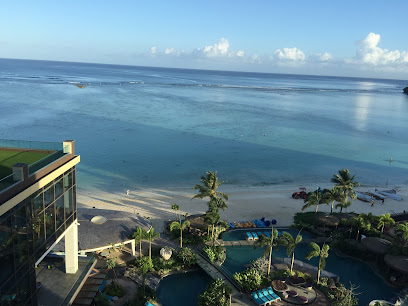
Fort Santa Agueda
Explore Guam's history at Fort Santa Agueda in Hagåtña. Enjoy panoramic views from the last surviving Spanish fort and discover the island's past.
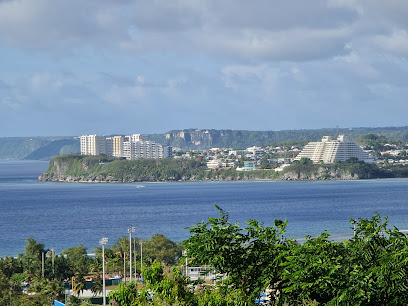
Fish Eye Underwater Observatory
Explore Guam's underwater paradise at Fish Eye Marine Park: Micronesia's only underwater observatory in the vibrant Piti Bay Marine Preserve.
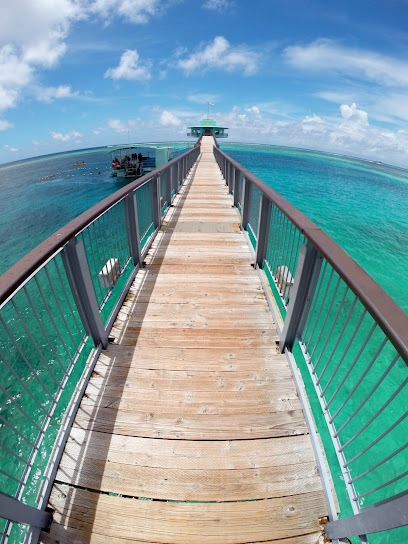
Asan Bay Overlook
Reflect on Guam's history at Asan Bay Overlook, a serene memorial with panoramic ocean views and tributes to WWII heroes.
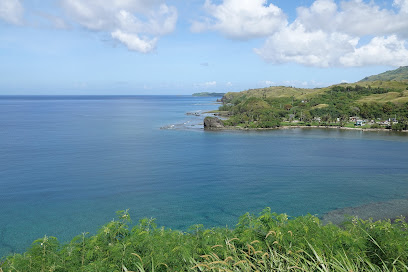
War in the Pacific National Historical Park
Explore Guam's WWII battlefields, memorials, and history at this park honoring all who participated in the Pacific Theater.
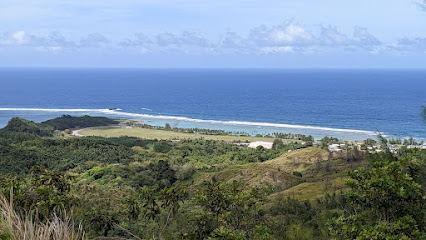
Magellan Monument
Commemorating Magellan's landing in Guam, this monument marks a pivotal moment in the island's history and its connection to Western civilization.
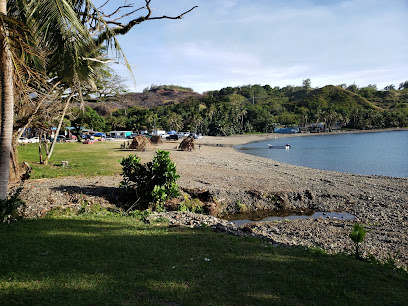
Tanguisson Beach
Discover Guam's Tanguisson Beach: A unique coastal paradise with mushroom rocks, clear waters, and rich history, perfect for relaxation and adventure.
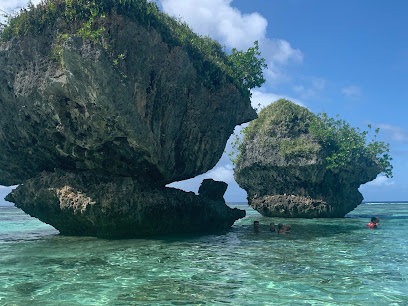
Unmissable attractions to see
The Guam Farmers Market
Experience the vibrant culture and fresh flavors of Guam at the Dededo Farmers Market, a weekend tradition showcasing local produce and crafts.
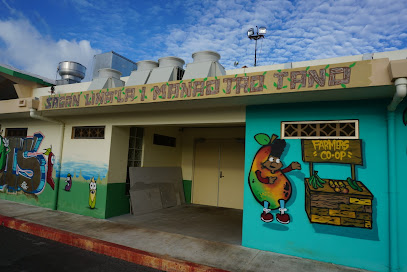
Dulce Nombre de Maria Cathedral-Basilica
Discover Guam's rich Catholic heritage at the Dulce Nombre de Maria Cathedral-Basilica, a historic landmark and spiritual center in Hagåtña.
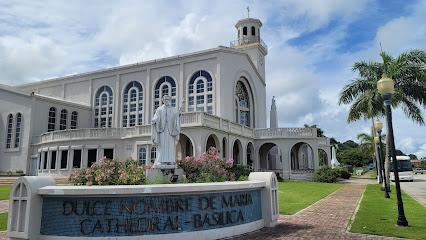
Skydive Guam LLC
Experience the ultimate thrill with Skydive Guam! Soar above the island and witness breathtaking views of Guam's tropical paradise.
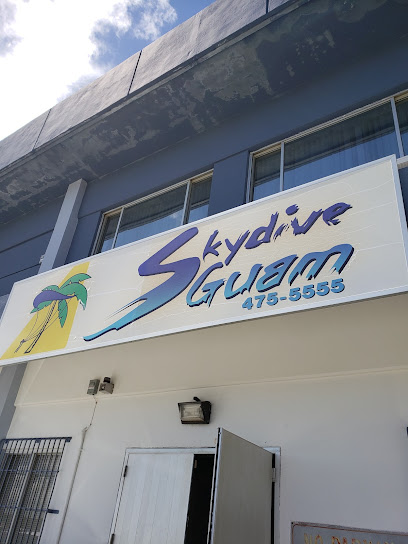
Sella Bay Overlook
Experience breathtaking panoramic views and historical insights at Sella Bay Overlook, a gem on Guam's southern coast.
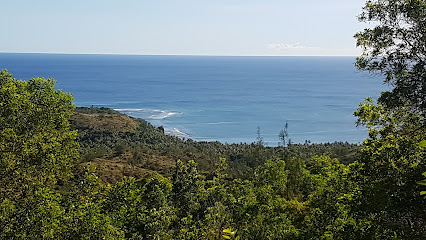
Nimitz Beach Park
Discover tranquility at Nimitz Beach Park in Guam, a perfect spot for relaxation, swimming, and enjoying the island's natural beauty.
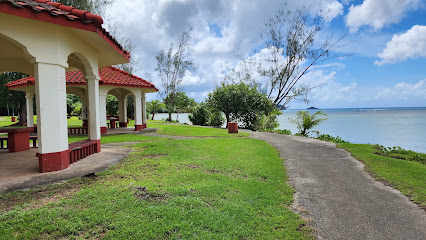
Bear Rock
Discover Bear Rock in Inalåhan, Guam: a stunning natural attraction with breathtaking views and a serene escape.
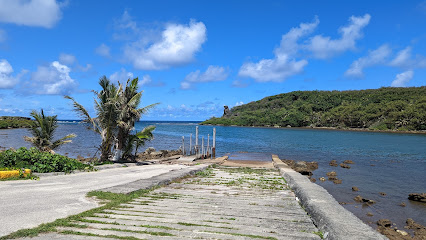
Nat Park Asan Beach
Explore Guam's Asan Beach: a historic WWII landing site, now a serene park with memorials, recreation, and stunning Pacific Ocean views.
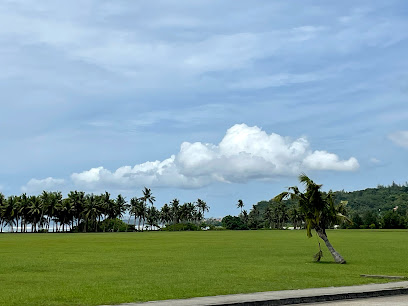
Guam Ocean Park
Discover Guam Ocean Park: Dive into marine adventures, thrilling water sports, and unforgettable family fun on Guam's beautiful private beach.
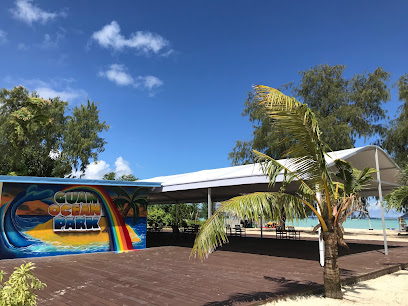
Fouha Rock | Fu'una and Puntan
Discover Guam's ancient creation story at Fouha Rock, where the goddess Fu'una birthed humanity. A natural landmark steeped in Chamorro legend.
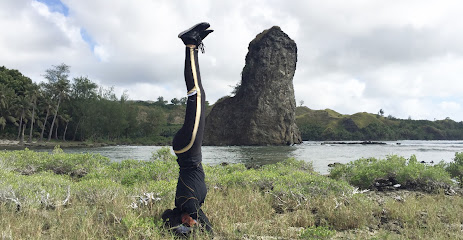
Manenggon Memorial Park
A tranquil memorial in Guam's Windward Hills, honoring the resilience and sacrifices of the Chamorro people during World War II.
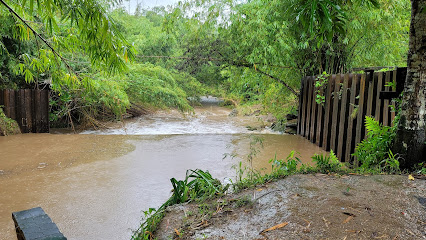
Asan Invasion Beach
Walk the shores of history at Asan Invasion Beach in Guam, where WWII echoes meet serene beauty and enduring remembrance.
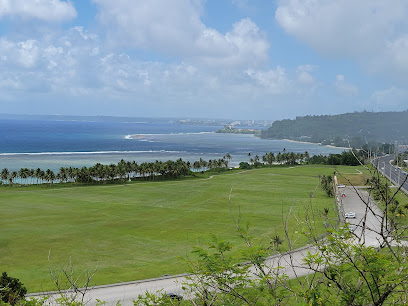
Essential places to dine
Proa Restaurant
Experience authentic Chamorro cuisine at Proa Restaurant in Tumon, Guam - where local flavors meet a welcoming atmosphere.
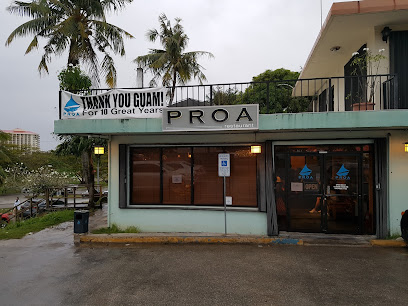
King's Restaurant
Discover delicious American cuisine at King's Restaurant in Guam – where hearty breakfasts meet local flavors!
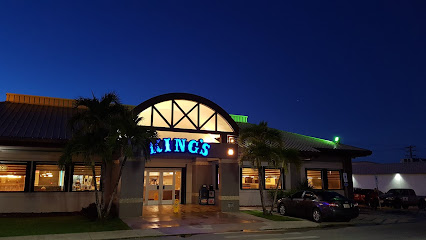
Mosa's Joint
Discover Mosa's Joint in Hagåtña - where delicious hamburgers meet vibrant local culture in Guam.
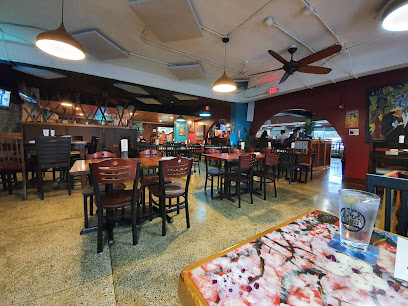
The Kracked Egg
Discover delicious breakfasts and brunches at The Kracked Egg in Tumon, Guam - where every bite feels like paradise.
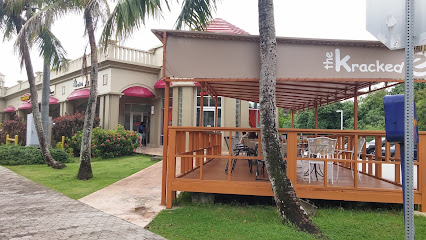
TuRe’ Café
Discover authentic flavors at TuRe’ Café in Hagåtña, Guam – where every meal is a celebration of local cuisine.
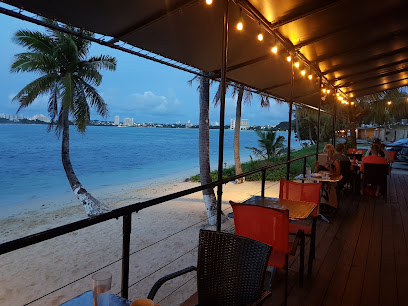
Capricciosa Restaurant
Discover authentic Italian dining at Capricciosa Restaurant in Guam - where tradition meets flavor in every dish!
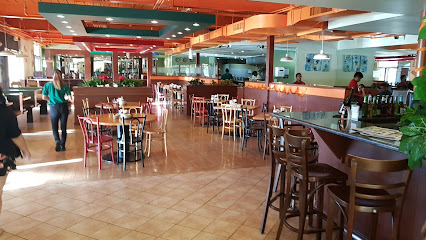
Three Squares Restaurant
Discover authentic Chamorro flavors at Three Squares Restaurant in Tamuning, Guam - where fresh ingredients meet warm hospitality.
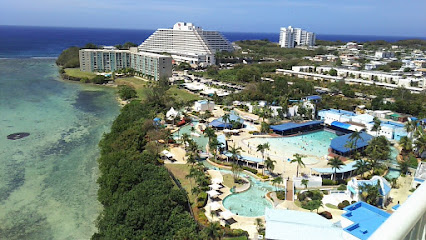
Olive Garden Italian Restaurant
Experience the rich flavors of Italy at Olive Garden in Tamuning - a perfect blend of family dining and authentic Mediterranean cuisine.
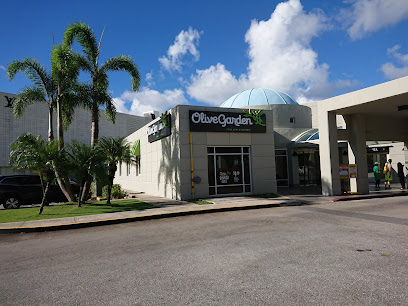
Jamaican Grill
Experience authentic Caribbean cuisine at Jamaican Grill in Chamorro Village - savor jerk chicken, curry goat & more amidst vibrant island vibes.
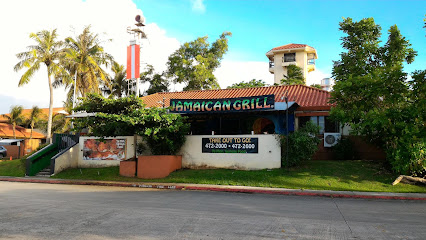
Tasi Grill
Experience the best of Guam’s culinary scene at Tasi Grill—where breathtaking views meet delicious local flavors.
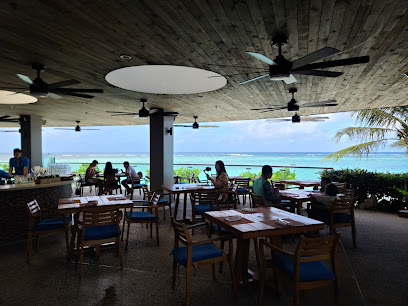
Crab Daddy Guam
Discover fresh seafood delights at Crab Daddy Guam in Hagåtña – where island flavors meet culinary excellence!
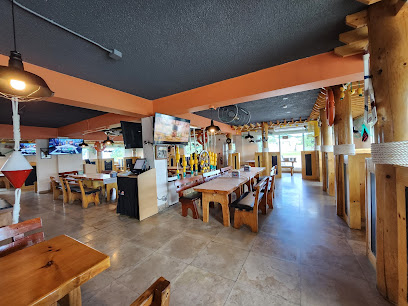
Michelle's Coffee Shop
Discover the cozy charm of Michelle's Coffee Shop in Mangilao - where great coffee meets warm hospitality.
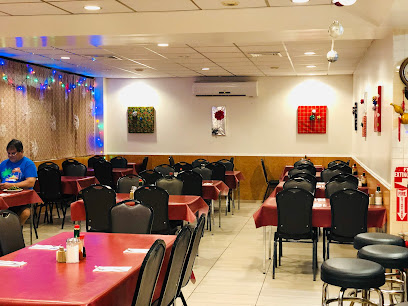
Roy's Restaurant
Savor authentic Hawaiian cuisine at Roy's Restaurant in Tumon, Guam – where fresh ingredients meet island-inspired creativity.
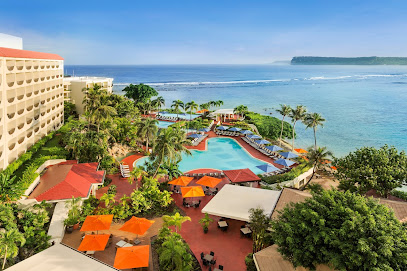
Khaohom Thai Restaurant
Discover authentic Thai cuisine at Khaohom Thai Restaurant in Apotgan, Guam – where every dish tells a story.
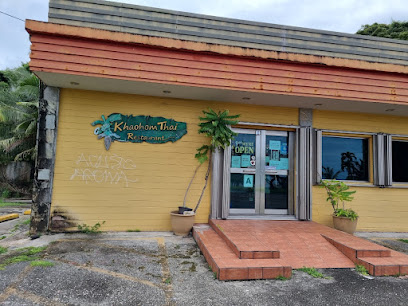
Ron's Diner
Discover Ron's Diner in Guam – where family-friendly dining meets delicious Polynesian cuisine in an inviting atmosphere.
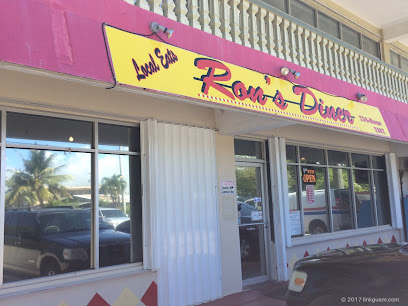
Markets, malls and hidden boutiques
Guam Premier Outlets
Discover unbeatable deals and a wide variety of brands at Guam Premier Outlets, the ultimate shopping destination for tourists in Guam.

Agaña Shopping Center
Discover the vibrant Agaña Shopping Center in Guam, where shopping, dining, and local culture come together in a delightful experience.
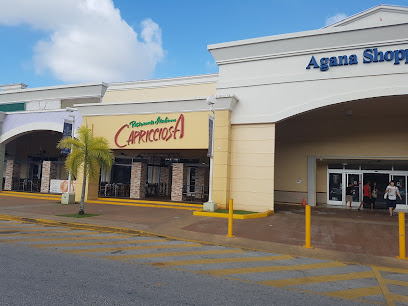
Kmart
Discover Kmart in Guam, your one-stop destination for affordable shopping, offering clothing, electronics, home goods, and more in a vibrant atmosphere.

JP Superstore
Experience the vibrant shopping culture of Guam at JP Superstore, offering local crafts, international brands, and a welcoming atmosphere for all tourists.

Ross Dress for Less
Discover unbeatable deals on trendy clothing for everyone at Ross Dress for Less, your essential shopping destination in Guam.

Tumon Sands Plaza
Explore Tumon Sands Plaza, Guam's premier shopping mall, featuring top brands, dining options, and a beautiful beachfront location perfect for tourists.
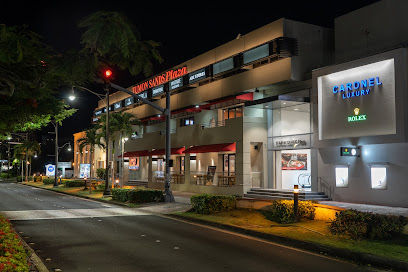
SM Island Guam
Discover unique finds and local treasures at SM Island Guam, the ultimate shopping destination for tourists in Hagåtña.

Yogurtland
Discover the ultimate frozen yogurt experience at Yogurtland in Hagåtña, where every treat is customizable and deliciously refreshing.

Acanta Mall
Discover Acanta Mall in Guam: Your ultimate shopping destination with local charm, diverse dining, and vibrant entertainment.
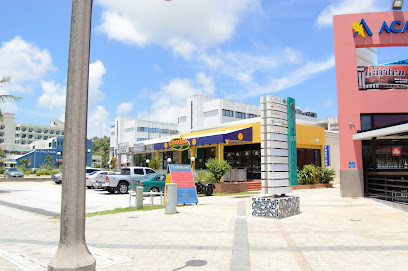
Asan Beach Unit
Discover the beauty and history of Asan Beach Unit in Guam, where pristine sands meet stunning waters and rich cultural heritage.
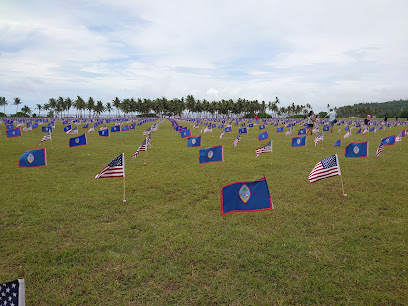
JP Store
Explore the latest trends and unique styles at JP Store, Guam's premier clothing destination in Tumon.

ABC Stores #505
Shop at ABC Stores #505 in Guam for convenience, local souvenirs, and essential travel needs, all in one friendly location.

TROPICAL T-SHIRTS
Discover vibrant tropical apparel and unique souvenirs at Tropical T-Shirts in Micronesia Mall, a must-visit for tourists in Guam.

The Vault GU
Explore The Vault GU in Liguan for a chic selection of unique clothing and accessories that showcase Guam's vibrant fashion scene.

Asan Invasion Beach
Explore the serene Asan Invasion Beach in Guam, a historical site that beautifully blends nature and history amidst the scenic shoreline.
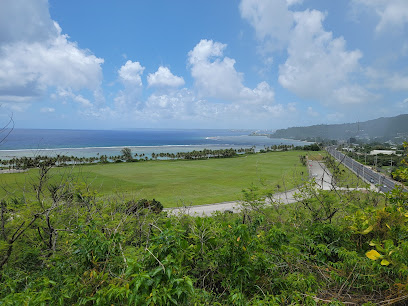
Essential bars & hidden hideouts
Jimmy Dee's Paradise Beach Resort & Bar
Experience the vibrant atmosphere and stunning views at Jimmy Dee's Paradise Beach Resort & Bar in Guam, your ultimate tropical getaway.
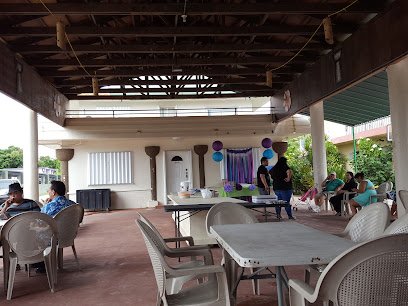
Tree Bar
Discover the tropical charm of Tree Bar at Hilton Guam Resort, where stunning views and refreshing cocktails create the perfect getaway.
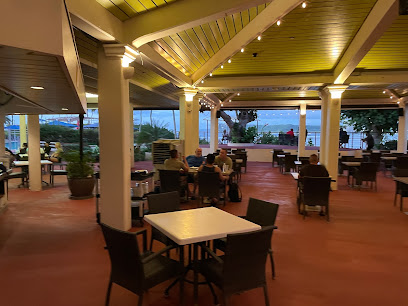
Bernie's Bar
Discover the lively ambiance and unique cocktails at Bernie's Bar in Apotgan, Guam, a perfect spot for nightlife enthusiasts.
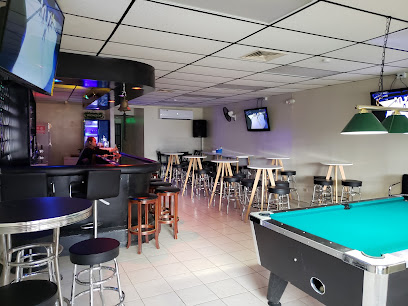
The Venue
Experience the vibrant nightlife at The Venue in Hagåtña, Guam, where cocktails, live music, and island culture blend seamlessly.
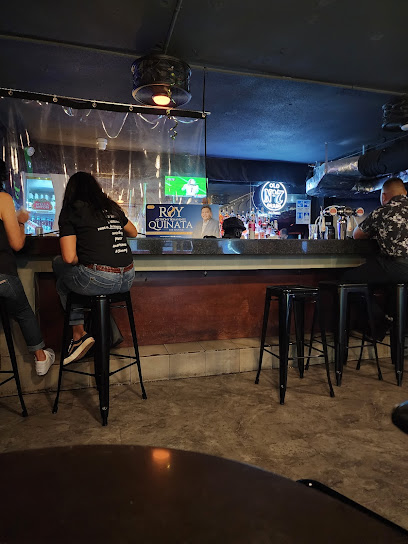
Skyline Resto-Pub
Discover the vibrant nightlife at Skyline Resto-Pub in Guam, where delicious food, refreshing drinks, and stunning views await you!
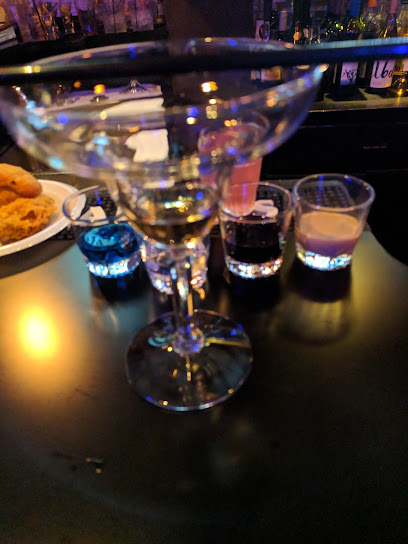
Las Vegas Karaoke & Bar
Experience the thrill of karaoke and the joy of nightlife at Las Vegas Karaoke & Bar in Hagåtña, Guam - where every night is a celebration!
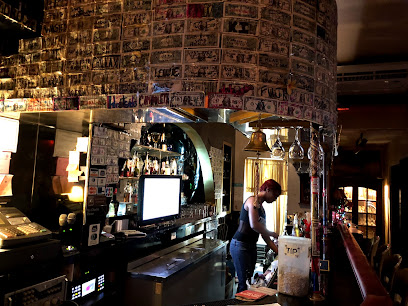
Infinity Bar
Enjoy stunning ocean views and vibrant cocktails at Infinity Bar, your tropical retreat in Tumon, Guam.
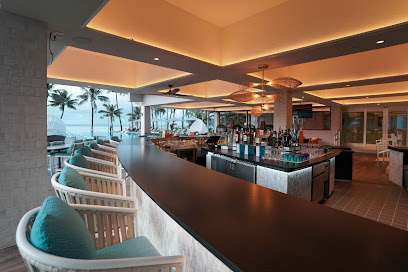
Belle's Bar
Discover the inviting atmosphere of Belle's Bar, a cozy retreat in Guam offering refreshing drinks and a taste of local culture away from the bustling crowds.
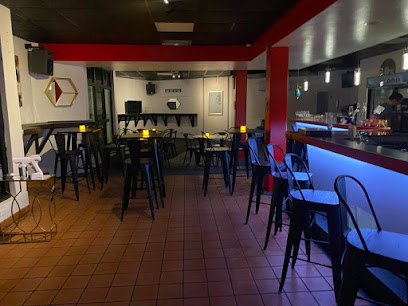
Player's Bar
Discover the vibrant nightlife at Player's Bar in Hagåtña, Guam, featuring great drinks, live entertainment, and a warm, inviting atmosphere.
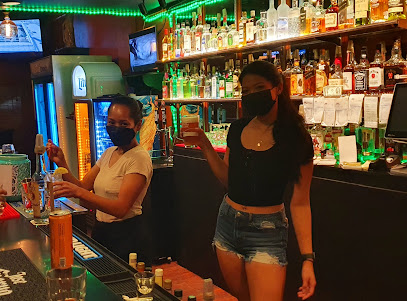
Cindy's Pub
Experience the lively atmosphere and creative cocktails at Cindy's Pub, a must-visit bar in the heart of Hagåtña, Guam.
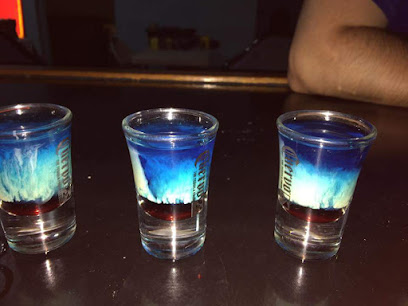
iCue Karaoke RestoLounge
Experience a lively cocktail bar in Anigua, Guam, where karaoke meets expertly crafted drinks for a night of unforgettable fun.

The Hare and Hound
Experience vibrant nightlife with karaoke and cocktails at The Hare and Hound in Guam, where every night is a celebration by the beach.
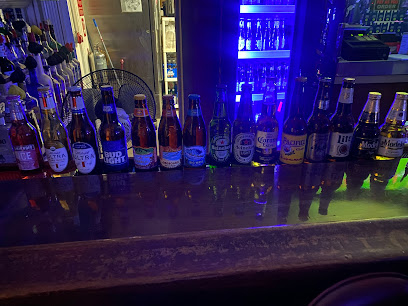
Good Company Bar
Good Company Bar in Hagåtña, Guam, offers a vibrant nightlife experience with expertly crafted cocktails and a welcoming atmosphere for tourists.

Laddas Lounge
Experience the vibrant nightlife of Guam at Laddas Lounge, where exceptional drinks and a lively atmosphere await every visitor.

Local Phrases about Asan Beach Park
-
- HelloHåfa Adai
[HAH-fah ah-DIE] - GoodbyeAdios
[ah-DYOS] - YesHåo
[HAH-oh] - NoTi
[tee] - Please/You're welcomeFanå'åse/Un dankolo na si Yu'us Ma'åse
[fah-NYAH-sheh/oon DAHN-koh-loh nah see YOOS mah-AH-sheh] - Thank youSi Yu'us Ma'åse
[see YOOS mah-AH-sheh] - Excuse me/SorryDispensa/Håyi
[dees-PEHN-sah/HAH-yee] - How are you?Håfa tatatmanu hao?
[HAH-fah tah-TAHT-mah-noo how] - Fine. And you?Maolek. Yan hao?
[MAH-oh-lek yahn how] - Do you speak English?U famalåo'an Inglés?
[oo fah-mah-LA-wan een-GLEHS] - I don't understandTi hu tungo'
[tee hoo TOONG-oh]
- HelloHåfa Adai
-
- I'd like to see the menu, pleaseLao'å-hu i menu, fanå'åse
[low-AH-hoo ee MEH-noo fah-NYAH-sheh] - I don't eat meatTi hu fa'gåga'
[tee hoo fah-GAH-gah] - Cheers!Biba!
[BEE-bah] - I would like to pay, pleaseLao'å-hu i salapi, fanå'åse
[low-AH-hoo ee sah-LAH-pee fah-NYAH-sheh]
- I'd like to see the menu, pleaseLao'å-hu i menu, fanå'åse
-
- Help!Ayudame!
[ah-yoo-DAH-meh] - Go away!Munga astaguat!
[moong-ngah ahs-tah-GWAHT] - Call the Police!Kåntak i Polisia!
[KAHN-tahk ee poh-LEE-see-ah] - Call a doctor!Kåntak i manmatåyi!
[KAHN-tahk ee mahn-mah-TAH-yee] - I'm lostTi hu mamåtungo'
[tee hoo mah-mah-TOONG-oh] - I'm illTi hu åtungo'
[tee hoo ah-TOONG-oh]
- Help!Ayudame!
-
- I'd like to buy...Lao'å-hu para...
[low-AH-hoo PAH-rah] - I'm just lookingTi hu håhåfino'
[tee hoo hah-HAH-fee-noh] - How much is it?Fåkånå' gi i estå?
[FAH-kah-NYAH gee ee ehs-TAH] - That's too expensiveMungnga kalakåt
[moong-ngah kah-lah-KAHT] - Can you lower the price?U åpatak i preis?
[oo AH-pah-tahk ee preys]
- I'd like to buy...Lao'å-hu para...
-
- What time is it?Kåo na tiempon este?
[KAH-oh nah tee-ehm-pohn ehs-teh] - It's one o'clockMåpat na tiempon
[MAH-paht nah tee-ehm-pohn] - Half past (10)Måpat gi hagas (10)
[MAH-paht gee HAH-gahs (10)] - MorningTåtdes
[TAHT-dess] - AfternoonAftahi
[AHF-tah-hee] - EveningKåo
[KAH-oh] - YesterdayUmanåna
[oo-mah-NAH-nah] - TodayUnggai
[oong-guy] - TomorrowBåba
[BAH-bah] - 1Måpat
[MAH-paht] - 2Måttott
[MAH-toht] - 3Måtlågat
[MAH-tlah-gaht] - 4Måfåfa
[MAH-fah-fah] - 5Målima
[MAH-lee-mah] - 6Mågun
[MAH-goon] - 7Måfiti
[MAH-fee-tee] - 8Måsåi
[MAH-sigh] - 9Måsigua
[MAH-see-gwah] - 10Målasa
[MAH-lah-sah]
- What time is it?Kåo na tiempon este?
-
- Where's a/the...?I na'an...
[ee nah-AHN] - What's the address?Fino' i direksion?
[fee-NOH ee dee-rek-see-on] - Can you show me (on the map)?U fanatåtte ha'åni (gi mapa)?
[oo fah-nah-TAHT-teh hah-AH-nee (gee MAH-pah)] - When's the next (bus)?Ki ha'åni i siguiente (bus)?
[kee hah-AH-nee ee see-GEE-yen-tee (boos)] - A ticket (to ....)Un tikit (para ...)
[oon TEE-keet (PAH-rah)]
- Where's a/the...?I na'an...
History of Asan Beach Park
-
Asan Beach Park is a significant historical site due to its crucial role in World War II. On July 21, 1944, American forces landed on Asan Beach as part of the larger effort to liberate Guam from Japanese occupation. The beach served as one of the primary landing sites for the U.S. Marine Corps and the U.S. Army during the Battle of Guam. The battle was a pivotal moment in the Pacific Theater, marking the beginning of the end for Japanese control in the region. Today, remnants of the war, including pillboxes, bunkers, and relics, can still be found throughout the park, serving as a poignant reminder of the island's turbulent past.
-
The Asan Ridge is another significant feature of the park, providing a strategic vantage point during the Battle of Guam. After the initial landings, American forces had to overcome the heavily fortified Japanese positions on Asan Ridge. The area saw intense fighting as U.S. troops advanced uphill against entrenched enemy forces. The successful capture of Asan Ridge was essential for securing the beachhead and advancing further into the island. Today, visitors can walk the trails that wind through the ridge, offering both a historical journey and panoramic views of the surrounding area.
-
The Asan Bay Overlook is a prominent feature within Asan Beach Park, offering a breathtaking view of the bay and the surrounding landscape. It is also a place of reflection and remembrance. The overlook features memorial plaques and interpretive signs that detail the events of the Battle of Guam and honor the sacrifices made by both American and Chamorro people during the war. The site serves as a poignant reminder of the cost of freedom and the resilience of the human spirit.
-
Long before the events of World War II, the area that is now Asan Beach Park was inhabited by the Chamorro people, the indigenous inhabitants of Guam. The park preserves elements of Chamorro culture and heritage, with interpretive signs and cultural demonstrations that provide insight into their traditional way of life. The Chamorro people have a rich history that includes seafaring, farming, and a unique social structure. Visitors to the park can learn about ancient Chamorro customs, traditional crafts, and the enduring legacy of this vibrant culture.
-
Asan Beach Park is part of the larger War in the Pacific National Historical Park, established in 1978 to commemorate the bravery and sacrifice of those who participated in the Pacific Theater during World War II. The park encompasses multiple sites across Guam, each with its own historical significance. Asan Beach Park, as one of these sites, provides a tangible connection to the past, allowing visitors to explore and understand the complex history of the region. The park also offers educational programs, guided tours, and special events that further enhance the visitor experience.
Asan Beach Park Essentials
-
Asan Beach Park is located on the western coast of Guam, approximately 10 miles from the capital city of Hagåtña. The nearest airport is Antonio B. Won Pat International Airport (GUM), located in Tamuning. From the airport, you can take a taxi or rent a car to reach Asan Beach Park, which is about a 20-minute drive. Public transportation options include taking a bus from the airport to Hagåtña and then connecting to a local bus route that stops near the park.
-
Once at Asan Beach Park, the best way to explore is on foot. For longer distances, renting a car is recommended as it offers flexibility and convenience. Taxis are also available but can be expensive. Public buses operate in the area, but schedules can be infrequent. Cycling is another option for those who enjoy an active mode of transport.
-
The official currency in Guam is the US Dollar (USD). Credit cards are widely accepted in hotels, restaurants, and shops. However, it is advisable to carry some cash for small purchases or in case you visit places that do not accept cards. ATMs are available in Hagåtña and other major towns, but it is wise to withdraw cash beforehand as there are fewer ATMs near Asan Beach Park.
-
Asan Beach Park is generally safe for tourists. However, it's wise to take standard precautions such as not leaving belongings unattended and avoiding poorly lit areas at night. Some neighborhoods in Hagåtña have higher crime rates, especially for petty crimes targeting tourists, so always stay alert and be aware of your surroundings.
-
In case of emergency, dial 911 for immediate assistance. There are medical facilities and a police station in nearby Hagåtña. It is advisable to have travel insurance that covers medical emergencies. For minor health issues, there are pharmacies in Hagåtña where you can purchase over-the-counter medications.
-
Fashion: Do dress modestly, especially when visiting cultural or historical sites. Avoid wearing overly revealing clothing. Religion: Do respect local customs and traditions. Public Transport: Do be respectful and give up your seat to elderly passengers. Don't eat or drink on public transport. Greetings: Do greet people with a smile and a slight nod. Chamorro people are very friendly and appreciate politeness. Eating & Drinking: Do try local delicacies and accept food offerings graciously. Don't refuse hospitality, as it is considered impolite.
-
To experience Asan Beach Park like a local, visit the park early in the morning or late in the afternoon to avoid the midday heat. Engage with locals who often visit the park for picnics and family gatherings; they are usually friendly and willing to share stories about Guam's history and culture. Don’t miss the historical markers and memorials commemorating the events of World War II, which offer a deeper understanding of the island's past.
Trending Landmarks in Asan Beach Park
-
Two Lover’s Point
-
Plaza de España
-
Fort Nuestra Señora de la Soledad
-
Merizo Pier Park
-
Cetti Bay Overlook
-
Ritidian Point
-
Guam National Wildlife Refuge
-
Paseo de Susana
-
Aquarium of Guam
-
Fort Santa Agueda
-
Fish Eye Underwater Observatory
-
Asan Bay Overlook
-
War in the Pacific National Historical Park
-
Magellan Monument
-
Tanguisson Beach
Nearby Cities to Asan Beach Park
-
Things To Do in Hagåtña
-
Things To Do in Sinajana
-
Things To Do in Tumon
-
Things To Do in Tamuning
-
Things To Do in Santa Rita
-
Things To Do in Dededo
-
Things To Do in Agat
-
Things To Do in Mangilao
-
Things To Do in Yigo
-
Things To Do in Koblerville
-
Things To Do in Saipan
-
Things To Do in Kagman
-
Things To Do in Garapan
-
Things To Do in Capital Hill
-
Things To Do in San Roque





